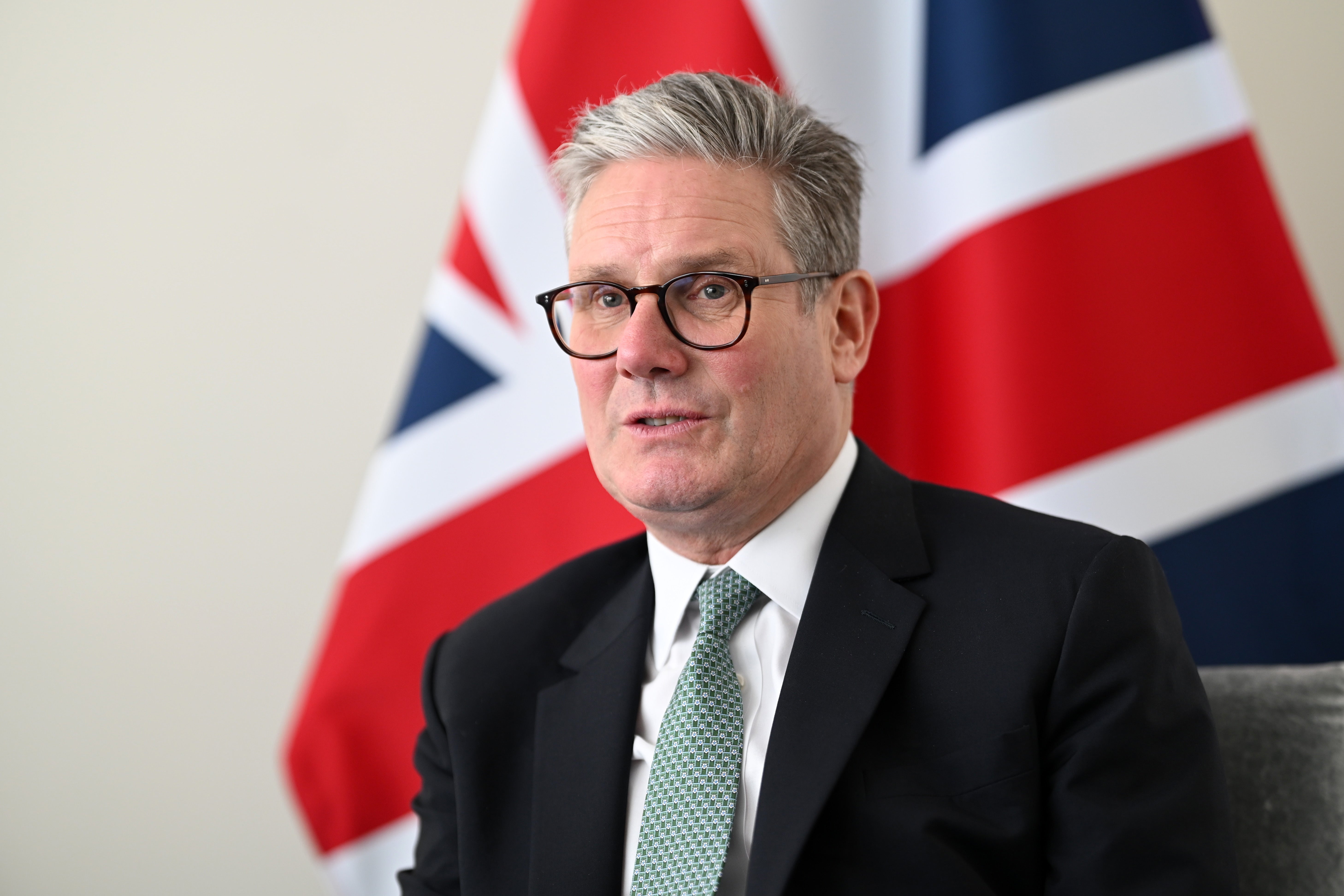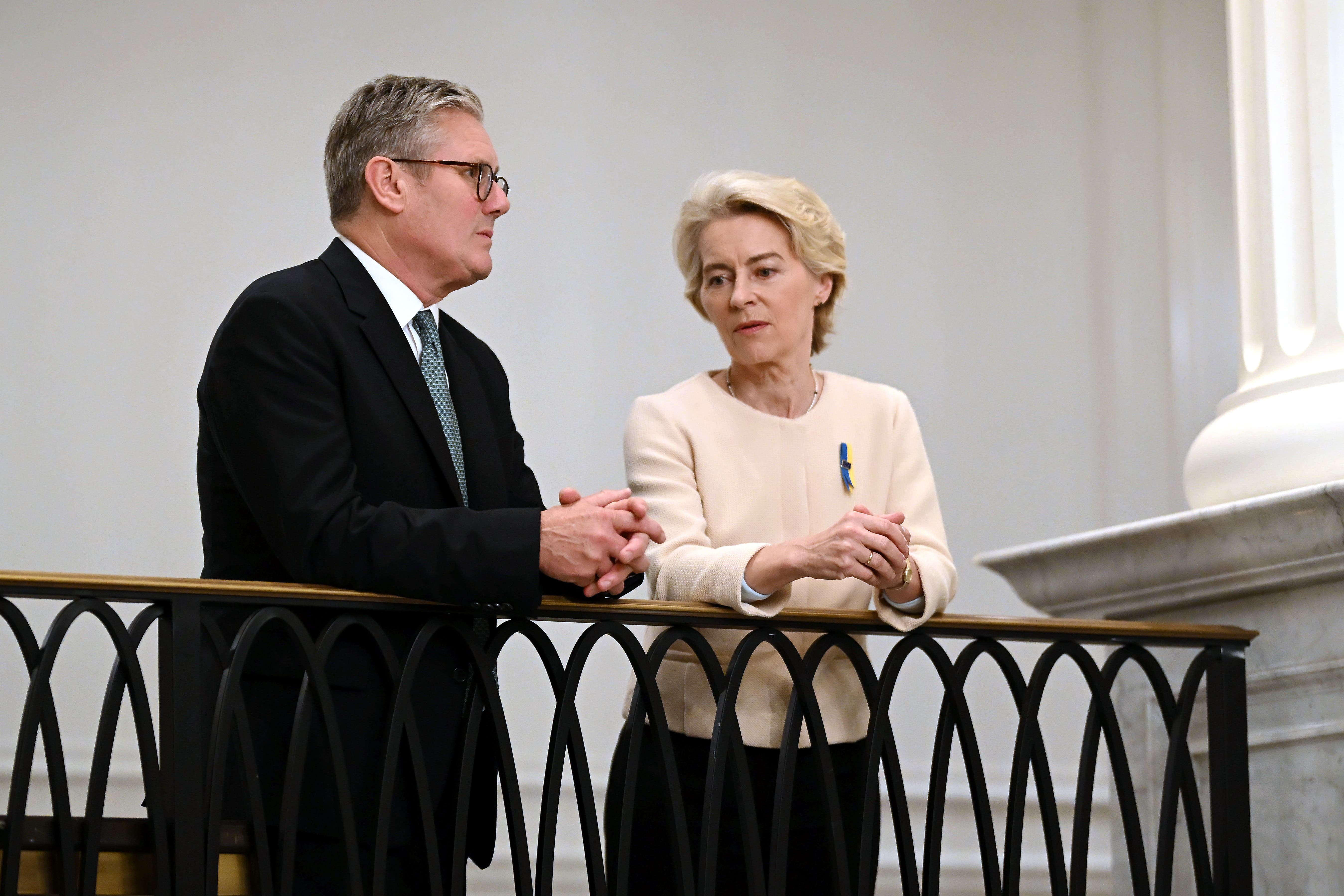Starmer facing demands from EU leaders as he arrives in Brussels to reset post-Brexit ties
The prime minister is set to start his EU reset in ernest on Wednesday - but is facing pressure on the youth mobility scheme
Your support helps us to tell the story
From reproductive rights to climate change to Big Tech, The Independent is on the ground when the story is developing. Whether it's investigating the financials of Elon Musk's pro-Trump PAC or producing our latest documentary, 'The A Word', which shines a light on the American women fighting for reproductive rights, we know how important it is to parse out the facts from the messaging.
At such a critical moment in US history, we need reporters on the ground. Your donation allows us to keep sending journalists to speak to both sides of the story.
The Independent is trusted by Americans across the entire political spectrum. And unlike many other quality news outlets, we choose not to lock Americans out of our reporting and analysis with paywalls. We believe quality journalism should be available to everyone, paid for by those who can afford it.
Your support makes all the difference.Keir Starmer kicks off his bid to reset Britain’s relationship with the European Union on Wednesday morning - but is facing early demands from leaders on migration, fishing and youth mobility.
The prime minister wants to tackle defence and security, crime and immigration, and then trade under a “three pillar” strategy for the crunch talks with EU leaders in Brussels, as revealed by The Independent last week.
But Sir Keir also arrives in Belgium under growing pressure to agree to a youth mobility scheme to allow under-30s to travel more freely between Britain and the EU.
European leaders are reportedly keen to not make it easy for Sir Keir and will hold demands; including long-term fishing access to British waters and a new migrant deal requiring Britain to accept an agreed number of asylum seekers from the continent.
Sources close to his senior negotiator - european affairs minister Nick Thomas-Symonds - say he is unwilling to agree to a youth mobility scheme too quickly and will want to use the EU’s enthusiasm for the project as a negotiating chip.

Such demands for concessions by the EU leades are likely to be raised this week before detailed negotiations later this year.
Building on the extensive and positive engagement which has taken place already, the prime minister will discuss his ambitions for the next few months with European Commission president Ursula von der Leyen, European Council president Charles Michel and president of the European Parliament Roberta Metsola.
Sir Keir has set out his determination to move beyond Brexit and make the UK’s relationship with the EU work for the British people, and he remains focused on delivering a broad-based security pact, securing our borders and tackling barriers to trade.
He will say that at a time of growing instability in the world – with wars in Ukraine and the Middle East, as well as the rise of vile smuggling gangs trafficking people across Europe – it is increasingly important that like-minded countries co-operate more closely on areas of shared interest.

While he wants talks to deliver ambitious and improved co-operation with EU leaders, he has been clear there will be no return to the single market, the customs union or freedom of movement.
But the European leaders will also have an opportunity to put forward what they want from Britain for a re-write of the Brexit trade deal.
The Times report that Ms von der Leyen will want the UK to agree to a new asylum pact from 2026 which will see member states resettle a set number of asylum seekers. It has been reported that the figure to be divided among states could start at 30,000 per year.
France is also reportedly pushing for a long-term deal to increase access to British waters for European fishing fleets.
Ahead of his trip, Sir Keir said: “The UK is undeniably stronger when it works in lockstep with its closest international partners. This has never been more important - with war, conflict and insecurity all knocking on Europe’s door.
“We will only be able to tackle these challenges by putting our collective weight behind them, which is why I am so determined to put the Brexit years behind us and establish a more pragmatic and mature relationship with the European Union.
“Better co-operation with the EU will deliver the benefits the British people deserve – securing our borders, keeping us safe and boosting economic growth.”

Join our commenting forum
Join thought-provoking conversations, follow other Independent readers and see their replies
Comments